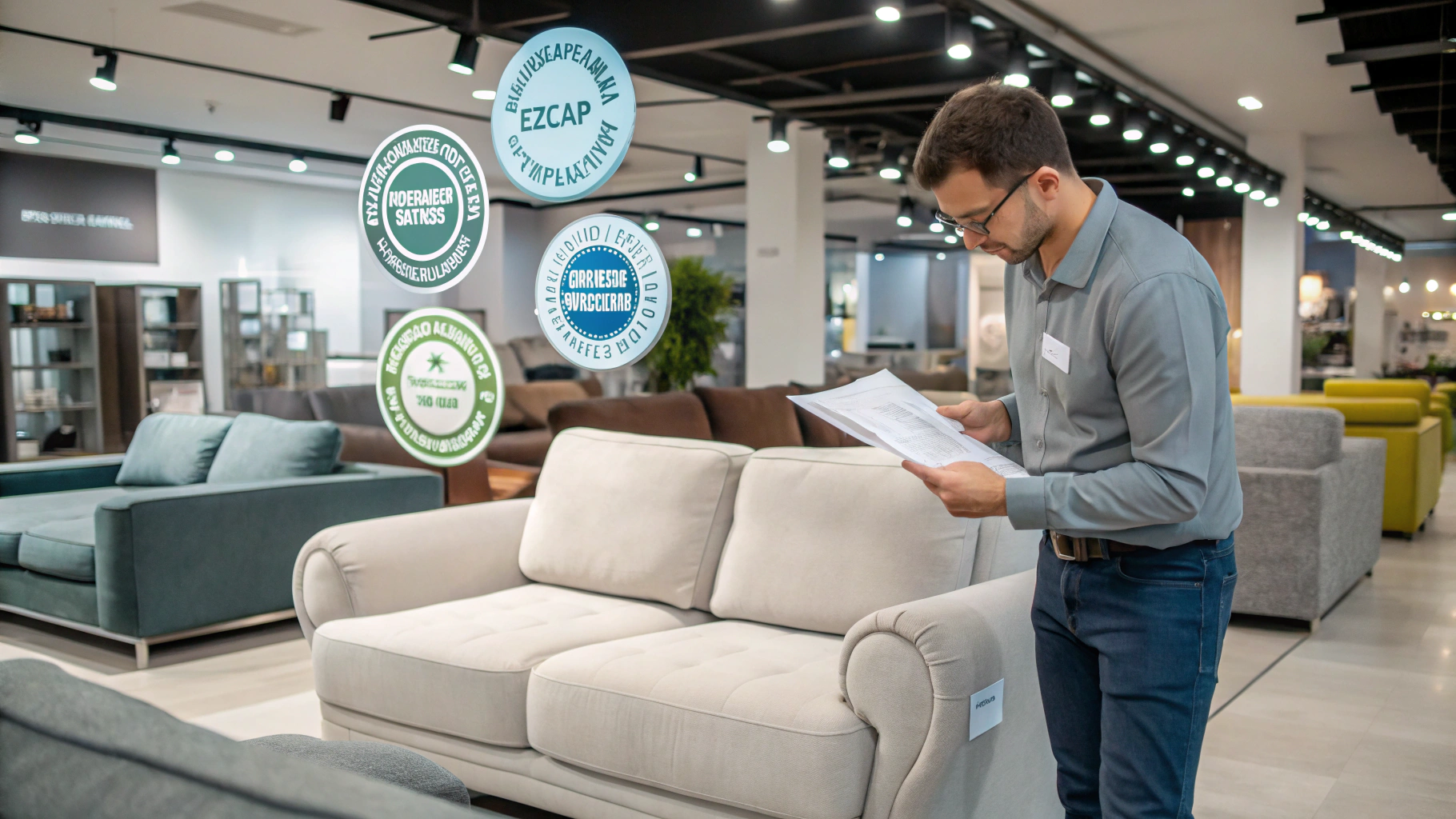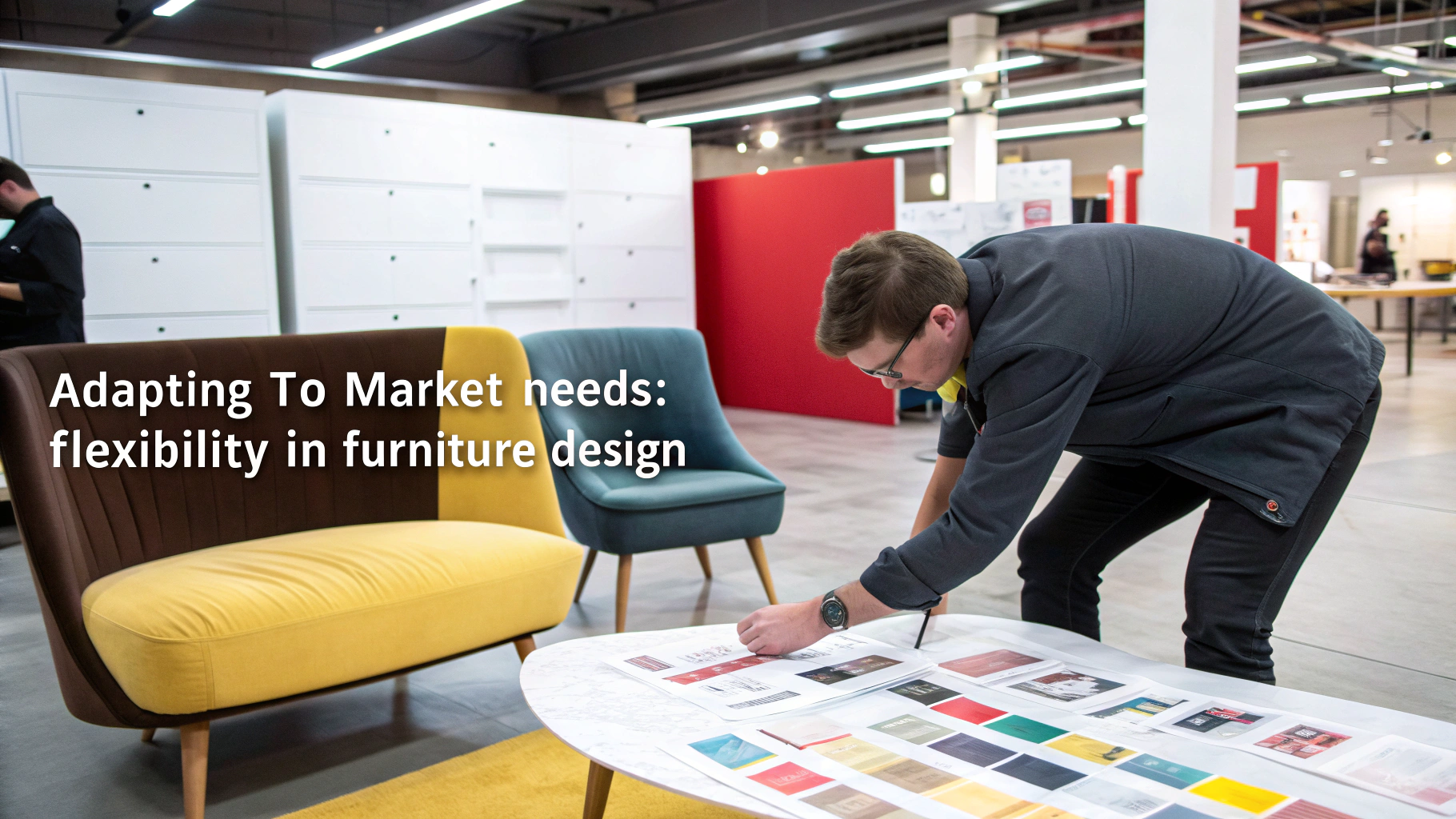In the competitive world of furniture marketing, standing out is essential to success. Consistent messaging, authenticity, and relationships built on trust play vital roles in captivating the interest of discerning retailers and consumers alike. For someone like me, who owns a furniture factory, embracing these strategies can attract and retain our clientele. At Starborn Furniture, weaving my personal journey and our brand's story into our messaging is key to establishing connections and foster growth.

Consistent messaging in furniture marketing is crucial as it ensures that the brand's values are clearly communicated across all channels, building customer trust and loyalty. This helps to set the brand apart from competitors, improve brand recognition, and ultimately drive sales. By maintaining a unified voice, retailers can create a more recognizable and trustworthy image in the minds of consumers, strengthening brand connections. I deeply believe in the power of consistent messaging, and at Starborn Furniture, we strive to present our brand's principles in every interaction.
How Does Certification Transparency Enhance Trust?
For any retailer in the furniture industry, trust is vital. It's no surprise that many retailers remain skeptical about certification claims, making transparency crucial.

Industry Skepticism in Certification Processes
Many retailers are wary of misleading claims about product certifications, leading to hesitation in business engagements. Knowing this, I often find myself in discussions to reassure concerned partners about the legitimacy of our offerings.
Starborn's Commitment to Certification Clarity
My team and I at Starborn Furniture have prioritized genuine compliance through transparent certification processes1. We offer visualization of BSCI and FSC certification audits. This added transparency not only enhances trust but also demonstrates our commitment to quality.
Trust Building in the EU Market
By focusing on honest certifications, we've seen significant growth in partnerships, particularly in the EU market. In fact, a recent case study showed a 20% increase in collaborations, allowing us to share our story authentically and foster trust among retailers who once hesitated.
How Flexible Production Systems Cater to Market Needs?
Adapting to market needs is crucial in furniture production. Flexibility allows furniture designs to meet the latest trends while maintaining quality.

Challenges in Meeting Rapid Market Changes
Our designers often encounter difficulties in sourcing products that align with current trends. Meeting these demands without compromising on quality remains a persistent challenge that impacts the supply chain.
Starborn's Adaptive Production Schedules
To address this, Starborn utilizes a monthly production flexibility system, offering custom orders with a 30-45 day turnaround. It's an approach that meets market demands and helps us support our partners effectively.
Customer Success with Tailored Solutions
The adaptive production model has repeatedly proven successful. Recently, a UK designer praised our ability to deliver trend-aligned furniture, resulting in a remarkable 15% increase in sales. When partners like this achieve success, it feels like a victory for our entire team.
Can Supply Chain Transparency Boost Retail Reliability?
In today's fast-paced world, transparency can make a significant difference in supply chain management2.

Pain Points in Tracking Product Origin
Retailers often struggle with opaque supply chains. This can lead to unexpected delays and damage business confidence, risking both time and reputation.
Integration of Transparent Supply Chains
Starborn has transformed our supply chain system by integrating an interactive dashboard. This tool traces a product's journey from design all the way to delivery, adding layers of reliability and trust.
Assured Deliveries and Increased ROI
Feedback from our UK partners shows a 25% reduction in delivery complaints. This tangible improvement has not only enhanced retailer satisfaction but also boosted returns on investment. Such outcomes confirm what I've always believed—transparency pays dividends in business.
How Do Ecological Collaborations Drive Sustainability?
Sustainability is no longer optional; it's a shared responsibility.

Industry Demand for Sustainable Products
The call for eco-friendly products has intensified, pushing suppliers to think sustainably. This shift in demand challenges and invites collaborations that prioritize the planet.
Starborn's Platform-Based Ecological Initiatives
At Starborn, we embrace ecological responsibility through platform collaborations that integrate sustainable materials. These efforts align perfectly with the eco-friendly goals of our retail partners.
Impactful Sustainability Partnerships
For instance, Dubai retailers experienced a 30% rise in customer perception, thanks to our shared focus on sustainable products3. Knowing Starborn played a part in this change fuels the enthusiasm that drives our continued commitment to ecological practices.
What Role Does Market Validation Play in Product Development?
Understanding market needs is paramount for successful furniture design.

Common Challenges in Verifying Market Needs
Designers frequently grapple with challenges in obtaining reliable data, making it difficult to validate new concepts before investing.
C2M Dashboard for Real-time Market Insights
To combat this, Starborn offers a C2M (Customer to Manufacturer) dashboard. This tool provides real-time market insights, enabling designers to validate and refine their concepts efficiently.
Successful Designer Collaborations
Our platform has empowered German designers to increase product launch success rates by 20%. These partnerships highlight the support and insights we offer, turning creative aspirations into marketable realities.
How Does Cultural Adaptation Ensure Market Relevance?
Cultural sensitivity is key to international market success.

Risks of Misaligning with Cultural Norms
Particularly in places like the UAE, misunderstanding cultural norms can jeopardize product acceptance and tarnish brand reputation.
JIS Standard Compliance and Cultural Design Integration
By integrating JIS standards into our designs, Starborn ensures market relevance. Our products align with cultural norms, satisfying a vital need in the Dubai market.
Strengthening Market Presence Through Cultural Sensitivity
Our efforts in culturally adaptive designs have proven successful. Dubai retailers witnessed a 30% sales boost, solidifying our presence and encouraging cultural respect.
Can Digital Marketing Tools Empower Small Retailers?
Digital marketing is a modern-day cornerstone for retail success.

Struggles with Digital Marketing on Limited Budgets
Small retailers often face hurdles in engaging customers through digital channels. Limited budgets complicate the challenge, making effective engagement elusive.
Starborn's Comprehensive Digital Marketing Toolkit
We've launched a suite of digital marketing tools designed to empower small retailers. These resources enhance online presence without incurring high costs.
Empowerment Through Effective Digital Strategies
As evidence of this, a French retailer doubled their online engagement rates through our targeted digital marketing tactics. Seeing the tangible success of our tools among small retail partners is immensely satisfying and motivates continued innovation.
Conclusion
Consistent messaging, transparent operations, and cultural sensitivity are core to thriving in furniture marketing. At Starborn Furniture, we weave these elements intricately, driven by personal and professional stories, to build a trustworthy and adaptive brand. Our journey is about embracing innovation and fostering meaningful relationships globally.
-
Explore this link to understand how effective certification processes can enhance trust and transparency in the furniture industry. ↩
-
This resource will provide insights into optimizing supply chain management for better transparency and reliability, crucial for retailers. ↩
-
Discover the latest trends in sustainable products that can help your business align with eco-friendly practices and meet consumer demand. ↩

